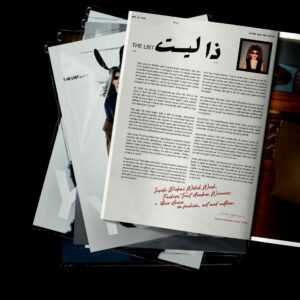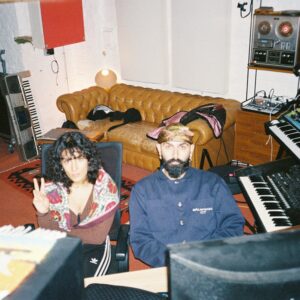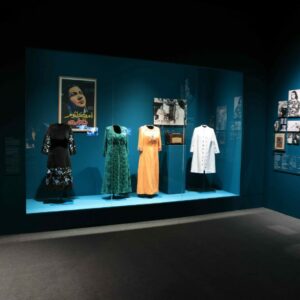Billy TSTRK’s (Instagram) debut LP 7ASHARA emerges as a raw transmission from Beirut’s underground, a compact 29-minute rupture in the usual Arabic hip-hop soundscape. Laid down with the city’s new anarchic collective M7DH0N©, the album arrives without fanfare or filter. As Billy says, “I wanted to create an Arabic rap project that sounds really original and progressive, and that intensely feels like Beirut, with no filters whatsoever.” The songs are fast and short, with a DIY punk ethos and uncompromising directness. Nothing is sugarcoated: listeners get raw slices of urban life and youthful disaffection.

A guiding tension pulses through 7ASHARA: irony meeting heartbreak, spiritual detachment clicking with desperate intimacy, fleeting euphoria collapsing into nausea. In Billy’s own words, “7ASHARA isn’t a story, it’s a leak. Beirut raised me on contradictions, not chapters.” He refuses tidy narrative arcs. Instead, the album itself leaks: a stream-of-consciousness, a dispatch from a city in crisis. We drift between flickering screens and silence; digital relationships rupture into loneliness; romance coasts into dysfunction. Every track is a fragment, and meaning is found in what’s implied, not fully spelled out.

Billy often turns the mic on Beirut itself. “Beirut feels hollow half the time. We don’t have much except substances, some parties, anxiety and economic recession,” he observes. That emptiness surges through 7ASHARA. The city’s restlessness, endless power cuts, daily corruption, the air of suspended normalcy, hum behind every line. “I’m just a byproduct of this environment,” he shrugs. His mission is to name what sits in his head with stark honesty: no piety, no distance, just the way it actually feels.
In terms of sound, 7ASHARA feels unstable, saturated, often claustrophobic. Tracks unfold under rattling beats, then collapse before the verse ends. Vocals are autotuned or layered, sometimes submerged under distortion, then suddenly piercingly clear. On the title track and on “BALAZO2,” Billy’s production saturates every frequency: rattling bass, churning synths that shimmer and warp, built into a manic haze. The chords flatten like tortured neon, the whole rhythm feels chaotic yet deliberate. Billy’s own delivery cuts through this racket with detached precision, haunting in its flatness.

At moments, the album swells into something like punk fury. The title track, in particular, stands as an experimental centerpiece: frantic, abrasive, obsessively textured. Sound seems to spiral out of control, but it is a controlled unhinging, meticulously constructed chaos. Then the sudden calm: Billy’s lines slice through the storm. Each track sketches a vignette, harsh city details or fractured dreams, but they are tied together by recurring motifs. This is Beirut in essence: imperfect, adaptive, finding ways to hold itself together even as things threaten to fall apart. In that sense, Billy’s process mirrors his environment’s DIY ethos: turning noise into texture, assembling meaning from debris. “I think something like 7ASHARA hasn’t been done in the scene ever,” he notes with sly confidence. The album’s dense loops and refrains become a strange kind of obsession.
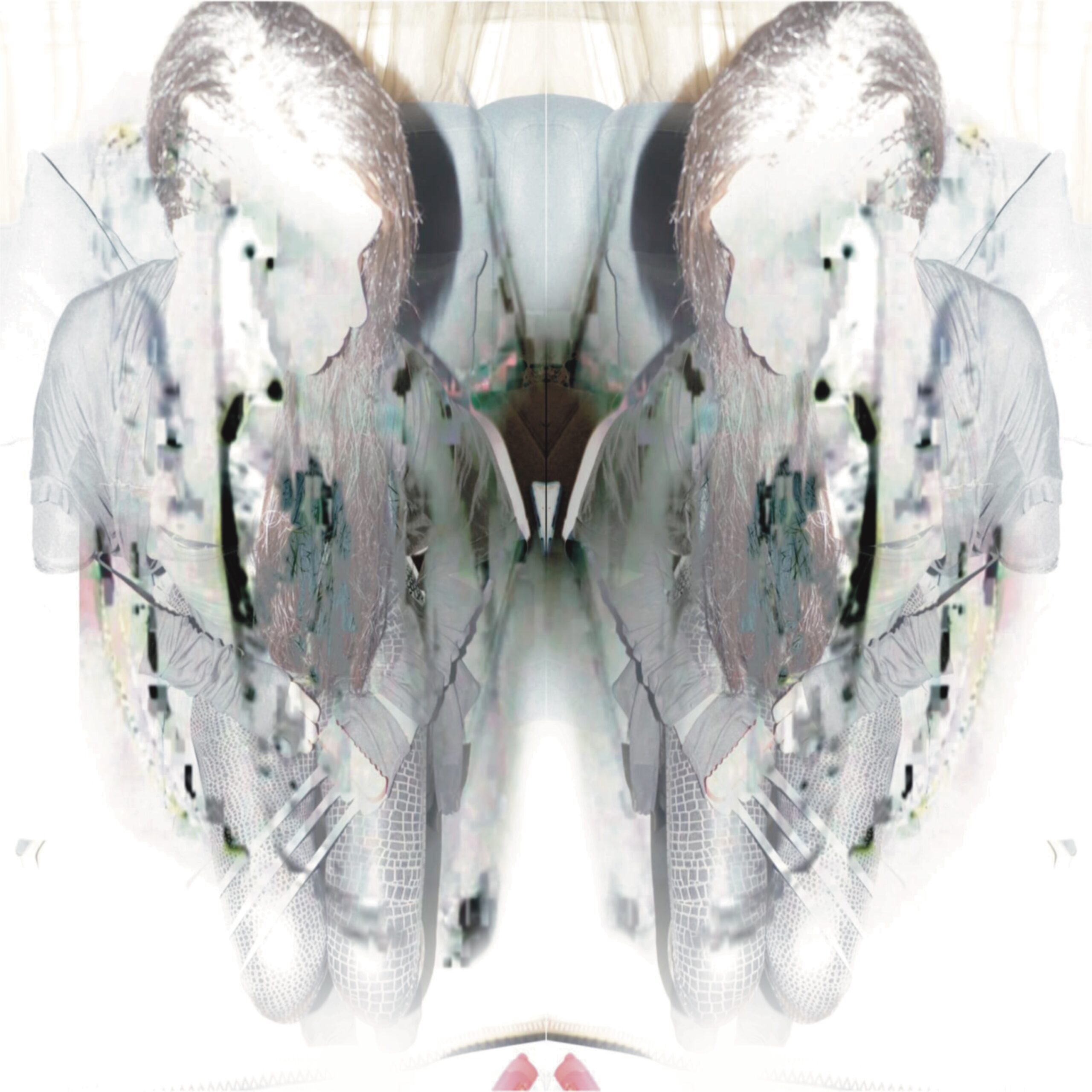
The album often feels like an elegy for a generation in overdrive. The opening track, “KHALAS” ft. Waja33, cuts out its own beat and leaves Billy speaking in silence. “مطفي راسي ،كِز معّ” he repeats: ‘my phone is off, I don’t care.’ There’s no audience in that moment, just his voice and resignation. Another image: in “100 KALB,” he pleads “kill me from boredom, maybe it’s better,” capturing exhaustion so absolute it sounds almost funereal. Many tracks carry this fatalist humor. They tap into a kind of collective burnout: youth wired into the global net but starved for meaning. In Beirut, even romance sours and rebellion feels futile. By album’s end, he’ll confess “maybe I’ll die from boredom,” and it sounds like a verdict rather than a joke.
Take “LLAYLE,” a stuttering nightclub confession recorded amid bombardment. Over a dark, throbbing beat, Billy repeats “الليلة السهرة دافية” (“tonight the party’s lit”) with half-jubilant detachment. The hook swirls in like synthetic glue. Then comes the twist: “I’ll pack my things and stay home, maybe the war starts and we all die tonight.” He says it almost offhand, as if shrugging off an apocalypse. Suddenly the track takes a turn. Pleasure and fear collapse into one breath. This uneasy mix of defiance and dread is the album’s ethos. 7ASHARA knows no separation: party and panic, music and missiles, tragedy and farce all live in the same heartbeat.
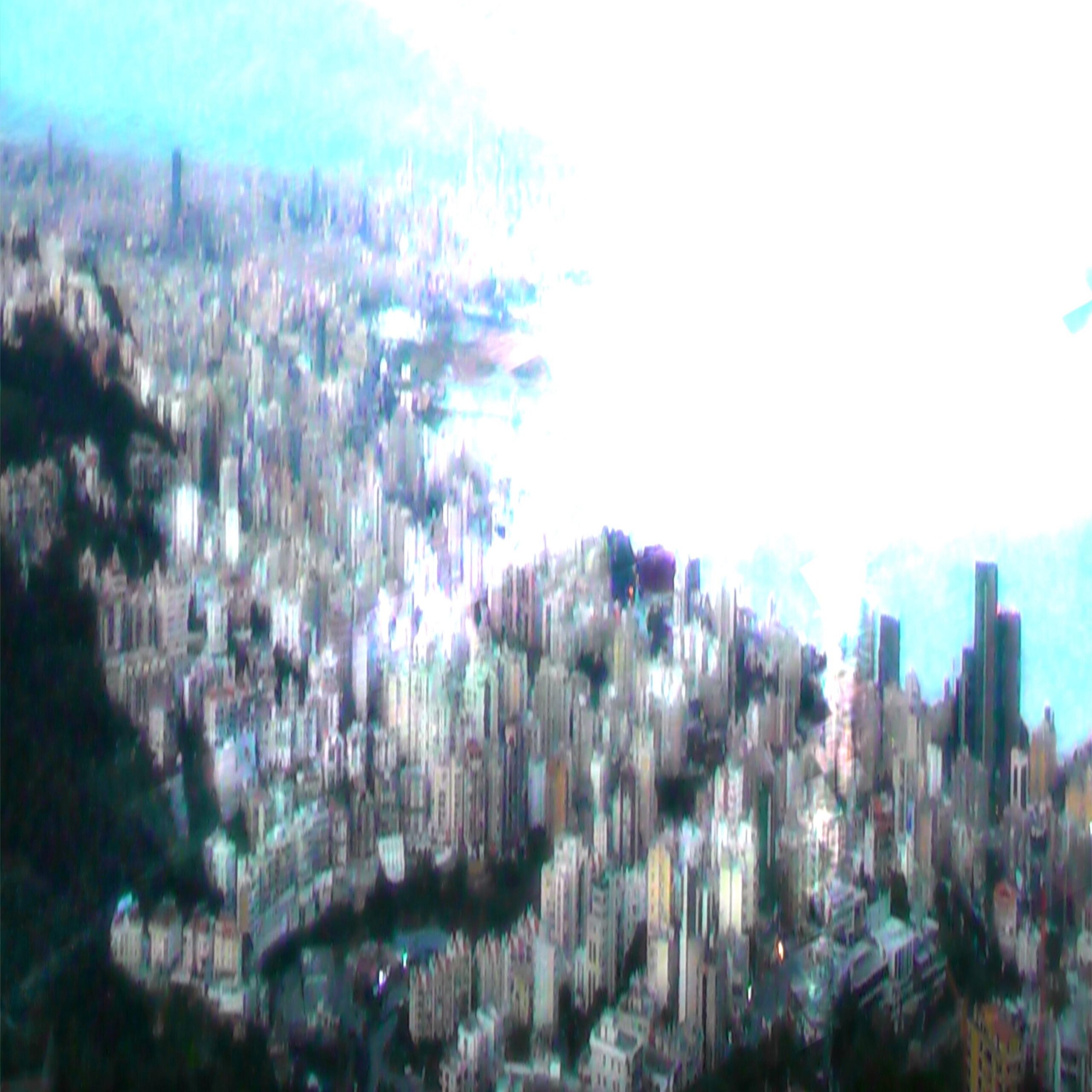
Billy doesn’t position himself as a distant observer, either. He sneers at the idea that shouting about electricity cuts and corruption in Arabic is some brave novelty. It just restates what everyone lives. “Rapping in Arabic doesn’t reveal pain; it restates what everyone knows,” he points out. His task is not to lecture but to inhabit the chaos. As M7DH0N would say, “we don’t give a sh*t about being moralizing or politically correct.” If someone finds 7ASHARA “too raw,” that’s precisely the point: its blunt honesty is exactly what the youth in Beirut have been waiting for.

Billy is the leading face of M7DH0N©, and through him the collective’s ethos rings true. “M7DH0N is what happens when you stop pretending,” he shrugs. The collective refuses to flatter institutions or coddle listeners with answers. “What we’re doing in M7DH0N is different and beyond what’s expected from the Lebanese scene, not out of calculation, but instinct,” Billy explains. “It pisses off some people for sure. But it doesn’t matter. We’re doing this shit for the youth that has been deprived of this honesty.” They’re deliberately raw because M7DH0N’s politics are lived, not theorized. “M7DH0N resonates across the Levant because we play our role honestly,” he adds.

In the end, 7ASHARA feels like a dispatch from the heart of Beirut. As Billy reminds us, “If people want a tidy message, they can look somewhere else. I’m just dropping the fragments the way this city gave them to me.” The album is both confession and manifesto: visceral and specific, rhythmically restless. Whether one hears discomfort or catharsis in its noise, 7ASHARA presents us Beirut’s reality, fractured into sound, with no escape hatch in sight.

